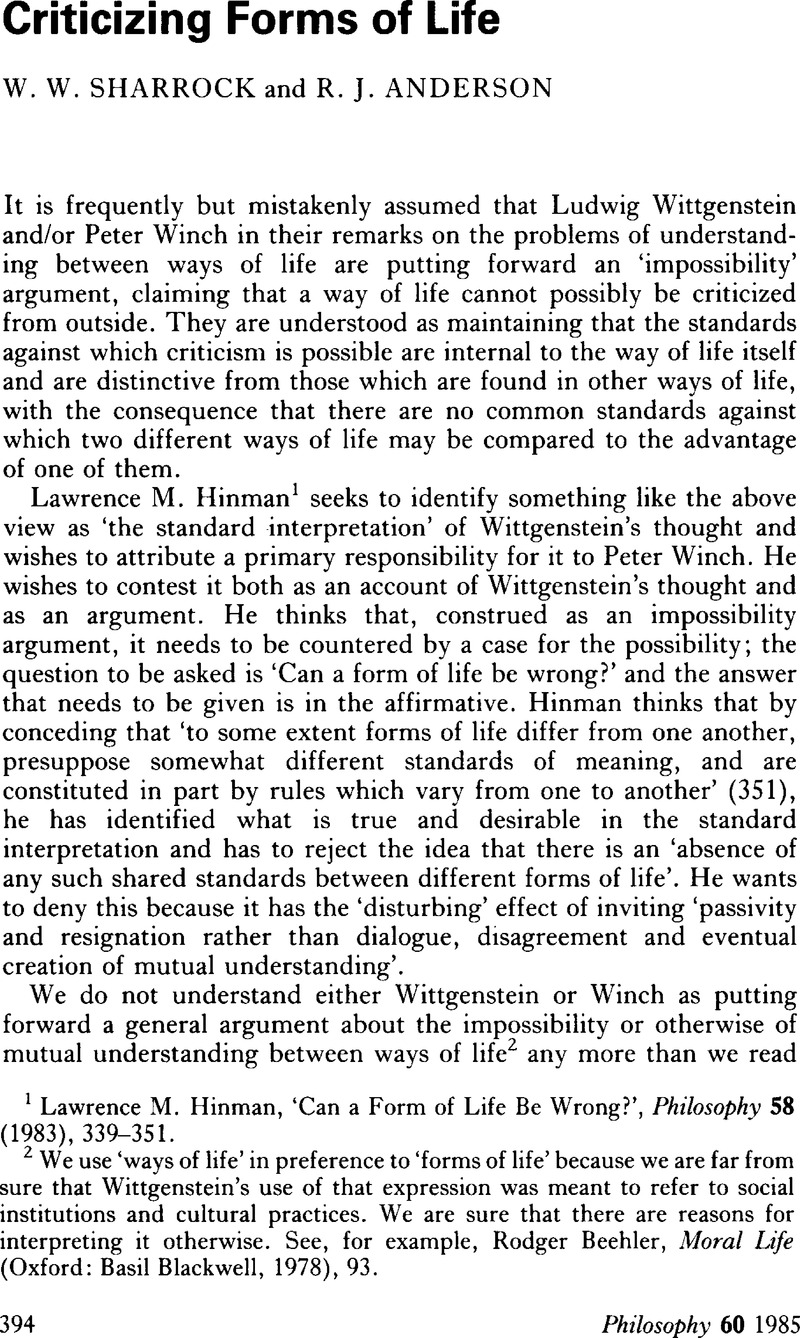Article contents
Criticizing Forms of Life
Published online by Cambridge University Press: 30 January 2009
Abstract

- Type
- Discussion
- Information
- Copyright
- Copyright © The Royal Institute of Philosophy 1985
References
1 Hinman, Lawrence M., ‘Can a Form of Life Be Wrong?’, Philosophy 58 (1983), 339–351CrossRefGoogle Scholar.
2 We use ‘ways of life’ in preference to ‘forms of life’ because we are far from sure that Wittgenstein's use of that expression was meant to refer to social institutions and cultural practices. We are sure that there are reasons for interpreting it otherwise. See, for example, Beehler, Rodger, Moral Life (Oxford: Basil Blackwell, 1978), 93Google Scholar.
3 Winch, Peter, ‘Understanding a Primitive Society’ in his Ethics and Action (London: Routledge and Kegan Paul, 1972), 15Google Scholar.
4 Wittgenstein, Ludwig, Philosophical Investigations (Oxford: Basil Black-well, 1953), 240, see also 241Google Scholar.
5 Wittgenstein, Ludwig, Lectures and Conversations on Aesthetics, Psychology and Religious Belief (Oxford: Basil Blackwell, 1966)Google Scholar.
6 Ibid., 53.
7 Ibid.
8 Ibid., 56.
9 Ibid.
10 Ludwig Wittgenstein, ‘Remarks on Frazer's “The Golden Bough”’ in Luckhardt, C. G., Wittgenstein: Sources and Perspectives (Brighton: Harvester, 1979), 61–81Google Scholar.
11 Winch, Peter, The Idea of a Social Science, (London: Routledge and Kegan Paul, 1958)Google Scholar.
12 Wittgenstein, , On Certainty (Oxford: Basil Blackwell, 1969), 608–609Google Scholar.
13 We are grateful to Ilham Dilman for his helpful comments on an earlier draft.
- 1
- Cited by


